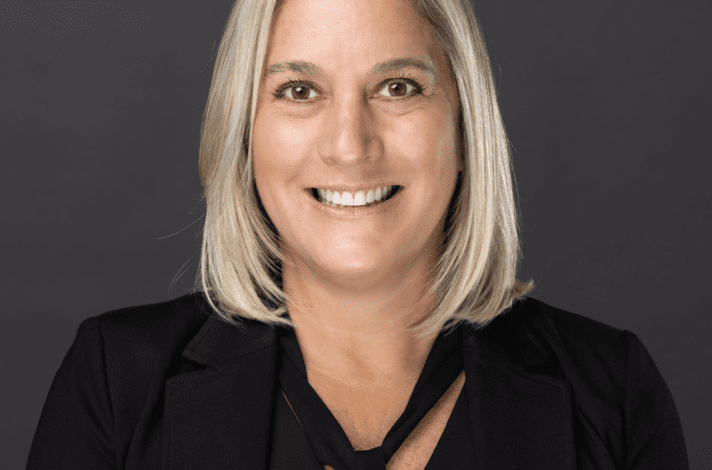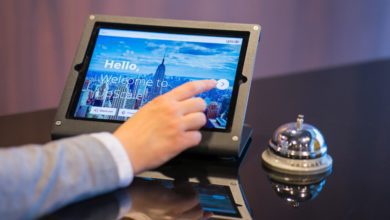The rich variety of luxury travellers and how to appeal to them
By Amy Colbourn, the managing director at MONOGRAM

When it comes to luxury hospitality, too often businesses think about customer service as something you do. In reality, customer service is all about how you deliver. It’s more of a consumer-centric value proposition: the value of the service is dependent upon the guest’s need, or the solution to the guest’s pain point. It may seem like a subtle nuance, but it’s really an important distinction.
For starters, it’s essential to understand luxury consumers and what’s most important to them. From there, you can create a customer service culture that delivers on the guest’s value proposition, while recognising that each guest is unique. This uniqueness is why it’s essential for hoteliers to deliver personalised service. It’s not a one-size fits all proposition.
This approach is about taking hospitality to the next level. In luxury hospitality, being successful requires two things you may not yet have considered in this way – one, understanding that not all luxury consumers are all the same; and two, delivering exceptional services requires personalisation, because the ultra luxury consumers differ from the “average” luxury consumer.
We have pinpointed the difference in preferences among luxury travellers – those with an annual income of over £250k – and luxury risers – those on an annual income between £100k and £249k. According to the Olinger Group’s Luxury Travellers vs. Luxury Risers 2023 study, luxury travellers spent double what luxury risers did on vacation in the last 12 months – and will spend double on vacations again in the following 12 months.
In every target audience, and among all audience segments, commonalities and differences both exist. As an agency that specialises in luxury, the hospitality short-hand that we can offer is an understanding of the commonalities that allows us to focus more on the differences. The differences define the unique needs of a segment.
When it comes to luxury consumers, there are similarities that run across all segments of luxury, including mass affluent, or “average luxury”, luxury and ultra luxury consumers. Things you can expect in terms of customer value proposition across all segments of luxury are safety, security, and a hassle-free experience. Luxury consumers on all levels are similarly motivated by elevated luxury experiences, exceptional amenities, added value perks, deluxe accommodations, personalised and high-touch service, and access to rare experiences, such as local cultural endeavours and VIP access to events and entertainment.
And there are several key differences among luxury consumers. For hotel and resort operators, understanding these nuances make all the difference in delivering service and prioritising messages in marketing.
Defining the ultra luxury consumer
Let’s begin with the aspects that define the ultra luxury consumer. For the ultra luxury consumer, time is the most valuable commodity. They value privacy and more bespoke levels of engagement. The ultra luxury consumer has high expectations for themselves and high expectations to please everyone else in their circle. They are motivated by quality time, sense of enjoyment, and bonding with family and friends. This consumer believes travel experiences are to be shared, and that the adventure and exploration that comes from travel makes them better by enhancing their lives.
Defining the ‘average’ luxury consumer
For the “average” luxury consumer, the value proposition is more often around the desire to see and be seen. They are interested in staying current with trends and up to date with popular culture. They are motivated by prestige and status. In fact, this more mainstream luxury consumer embodies the idea of “loud luxury” wherein, “they’re also far more likely to want the branding on luxury goods to be clearly visible” (80% vs 62%), according to a survey done by GWI, a consumer insights research company. This is in contrast to the quiet luxury appeal shared by the high affluent.
For this consumer, their pain points are about keeping up with the Joneses, staying in the fast lane, and impressing impressive people. They value proof of success and immersion in the scene.
You can’t be all things to all people
A tried and true statement is that you can’t be all things to all people. This is especially true in brand marketing when it comes to delivering on behalf of clients, and their clients. Each brand personality, value proposition and competitive advantage is unique. When you get down to it, those of us in hospitality are in the customisation business – whether that means brand marketing for a hotel, or delivering customer service for a hotel guest.
We must listen, diagnose and then prescribe. Personalised customer service is the backbone of the white glove experience. Some 68% of luxury travel advisors reported that travellers are opting for experiences tailored to what they value most: longer vacations, increased privacy, and premium and high-end amenities, according to Deloitte’ Future of Luxury Travel 2023.
It’s the understanding of consumers that allows for the personalisation of customer service. And, personalised services means a personalised experience for the guest. It’s critical to realise what’s important to one person is different from what’s important to another – especially in luxury consumption. Creating the experience is table stakes, it’s about serving individual emotional needs.
Understand who’s checking-in
For hotel operators, it is essential to understand who’s showing up. You can have different versions of the same person staying at your hotel. The guy who is there with his wife and kids is a different version of himself when he’s there on a business trip with colleagues. The woman who is there with her husband for a romantic getaway is a different version of herself when visiting with friends for the weekend. These versions of people have shifting values and priorities. It’s important to know which version of the guest you’re getting.
Specialisation is more important today than ever. A one-size-fits-all approach doesn’t work for consumers who seek personalisation, it doesn’t work for hotels aiming to deliver exceptional customer service, and it doesn’t work for marketing partners charged with creating brand stories with a competitive advantage. Hotel clients are looking for marketing partners who are fluent in the language of hospitality and can help guide conversations, getting there smarter and faster.









